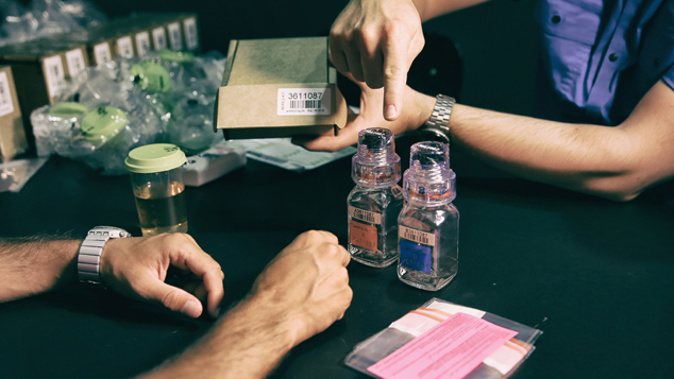
The Sunday Times and a German broadcaster have accessed the results of 12,000 blood tests from 5000 athletes between 2001 and 2012.
They reveal – according to the BBC which has also seen the evidence – "the extraordinary extent" of cheating by athletes at the world’s biggest's events.
The documents have been leaked by a whistleblower and the allegations now play a central part in a documentary.
The film-makers asked scientists and experts to review all the data and this is what they found – a third of medals in endurance events, including 55 gold medals, were won by athletes who recorded suspicious tests. And the film-makers say no athlete was ever stripped of their medals.
A further 800 athletes recorded tests which are highly suggestive of doping – or at the very least, abnormal.
Among them, top athletes. The world’s best at the time.
The most recent Olympics – the London 2012 Olympics – 10 medals were won by athletes who had dubious test results.
In some finals, every athlete who won a medal recorded a suspicious blood test.
Russia – not surprisingly – is described as the blood-testing epicentre of the world with more than 80% of the country’s medals won by suspicious athletes.
This, however, cheers my heart – the Jamaican sprinter, Usain Bolt, did not record an abnormal result. That man is extraordinary. Let us at least have some genuine champions.
Anti-doping expert Michael Ashenden sums it up pretty well. He says it is a shameful betrayal of the IAAF’s primary duty which is to police the sport and protect clean athletes.
So why has it failed? Why has this been kept secret?
To protect the sport? No. It comes down to corruption. To back-handers. To bribes.
How can you have 800 unreported suspicious tests? How can 10 medals in London record suspicious tests, but it was never made public.
How do you fix it? At the moment, some athletes get a two year ban. What about making it a criminal offence? Of course, that would rely on individual countries adopting new legislation. And would Russia do that? The Eastern bloc countries? China? No.
The other option -- and one that would act as a deterrent?
If an athlete tests positive, then ban that country from the next Olympics, or the next Commonwealth games, or World Championships. Is that too severe? It would make an athlete think twice before getting on the juice, surely -- the implications for his or her country would be so great.
It's a very difficult problem to solve. How do you stop it?
At the moment, it seems the penalties are too soft -- or as in the case of the IAAF, simply not enforced at all.
Take your Radio, Podcasts and Music with you









